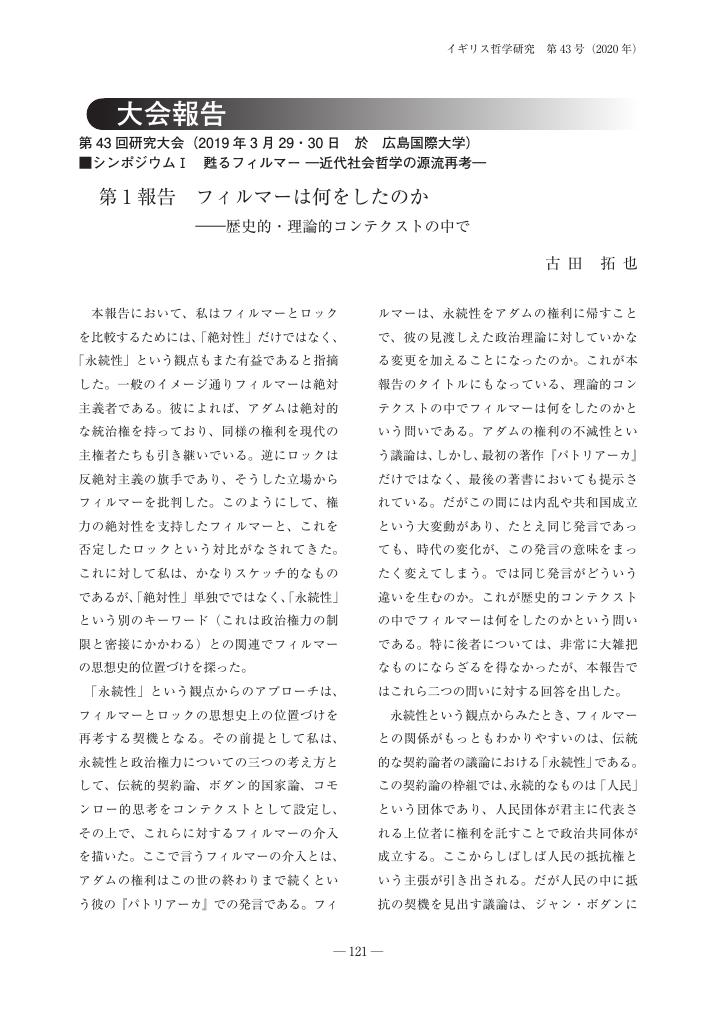1 0 0 0 OA 大会報告
1 0 0 0 IR トマス・リードは可謬主義者か : 成り立ちと直観の問題
- 著者
- 中元 洸太
- 出版者
- 京都大学大学院人間・環境学研究科『人間存在論』刊行会
- 雑誌
- 人間存在論 = Menschenontologie (ISSN:13412698)
- 巻号頁・発行日
- no.25, pp.49-60, 2019
Recently, Thomas Reid has been considered an 18th-century fallibilist philosopher. However, some commentators claim that Reid was not, in fact, a fallibilist. They reach this conclusion because Reid defines common sense knowledge as intuitive beliefs, and these beliefs are derived from the seemingly unalterable constitution of human nature. According to this view, Reidian common sense is rather fixed and does not allow for revision. This paper will examine this problem of constitution and intuition, and defend the view that Reid actually was a kind of fallibilist. When he asserts that our common sense beliefs have a just claim to knowledge, Reid often seems to appeal to our constitution and intuition, attempting to frame this assertion as the ultimate grounds for justification of human knowledge. However, this appeal is not so naive as one may assume. Reid also provides us with some criteria which can discern true constitutional knowledge from other types of beliefs (prejudices, vulgar error, inferential knowledge, etc.), and warns readers not to mistake apparent intuitive knowledge for truly intuitive knowledge. While appealing to constitution and intuition, he clearly intends to examine closely the components of real common sense beliefs and keep them under constant review. It seems strange that our constitutional and intuitive knowledge leaves space for revision. Yet, this paper suggests that there are at least two reasons why Reid acknowledges the possibility of such revision. First, Reid supposes that we cannot determine a boundary line between common sense knowledge and other beliefs. This may make one inquire whether a belief is a part of common sense or not. More importantly, his theory of knowledge is deeply connected with the idea that our mental faculties are capable of improvement and culture. When people improve their mental faculties, they are able to use them not only to detect errors but also to analyse and discover knowledge more minutely and precisely. This means that human knowledge is always provisional and may be revised upon the improvement of one's faculties. Thus, it is his belief in humans' ongoing capacity for improvement that makes Reid a fallibilist.
